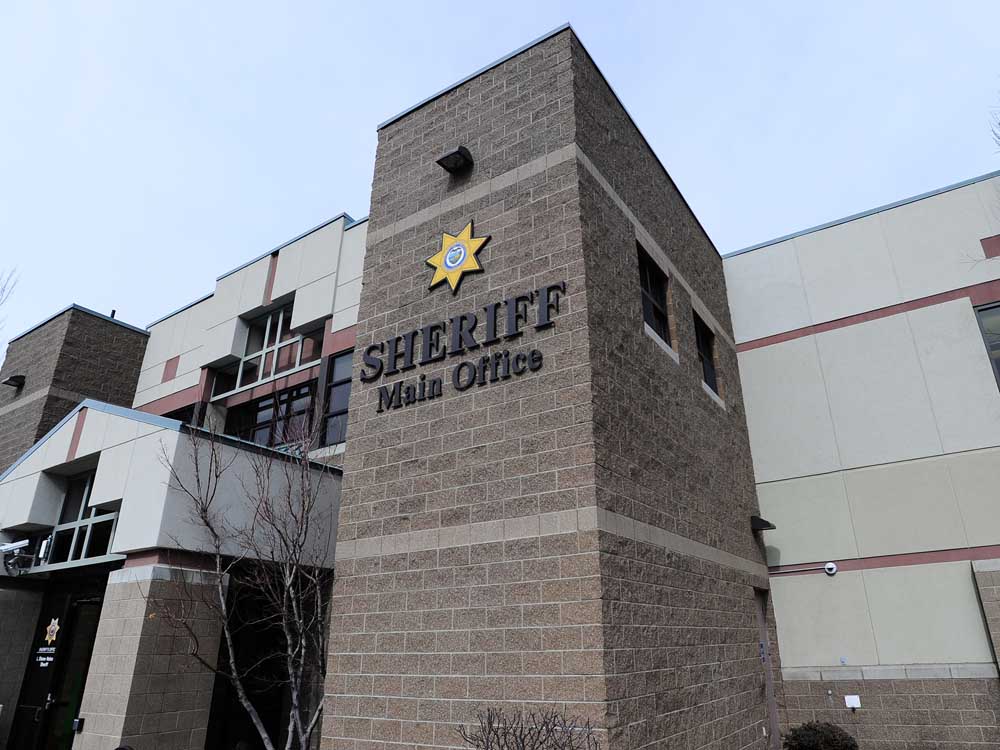Voters will decide whether to fund improvements to Oregon Zoo
Published 12:18 pm Thursday, April 25, 2024

- The Oregon Zoo’s Asian elephants kicked off the Halloween season Friday morning, Oct. 23, 2020, with the Squishing of the Squash, an annual tradition held since 1999. The zoo’s behemoth pachyderms got to stomp, crush and devour several giant pumpkins. The largest squash was 800 pounds. The largest elephant is Samson. He weighs about 9,685 pounds.
Penguins are on the ballot for residents of the Portland area next month.
Not directly, it’s true, but indirectly, in the form of a new bond to support capital improvements at the Oregon Zoo.
Trending
The Metro Council is asking voters in Multnomah, Washington and Clackamas counties to approve a $380 million bond to update the zoo for the next 15 years.
Metro officials said homeowners won’t see an increase in property taxes if voters approve Measure 26-244 because the debt for the 2008 zoo bond will be paid off before the new measure goes into effect.
If the zoo gets the money, one of the first projects would be a new home for the penguins.
“The animals are fine,” Heidi Rahn, the director of the Oregon Zoo, told The Oregonian earlier this year, pointing out areas that will be improved and rethought if the bond passes during a tour of the zoo. “But in the future, we know they’re not going to meet the standards that we have to meet and it’s already been called out by our accreditation body.”
The penguins are currently on view in a circular building built in 1959. The space is difficult to navigate with a wheelchair or a stroller and usually smells like fish. If the bond passes, the black and white birds will get a bigger, more accessible space, with access to fresh air and a more natural beach.
If voters say yes, it isn’t just the penguins who will get better digs. Sea otters and giraffes are also in line for renovated homes. And, Rahn said, the plan is to use some of the money to make the entire zoo more accessible to people with mobility challenges, as well as more resilient to climate change and different types of weather, among other things.
Trending
The Metro regional government plays a variety of roles across the tri-county Portland area, including managing garbage collection and recycling and operating the Oregon Convention Center, the Portland Expo Center and the Portland’5 Centers for the Arts, as well as owning and operating the zoo.
While the regional government says the expiration of the previous zoo measure will ensure homeowners don’t see an increase in property taxes from the new measure, that doesn’t mean the upgrades to the zoo will be free. They will cost homeowners 8.5 cents per $1,000 of assessed property value, according to Metro, or roughly $23 a year for a home assessed at $275,000.
Not everyone agrees that Metro should be asking voters to approve another tax.
“Metro has so much money, it doesn’t know what to do with it all,” said Jason Williams, executive director and founder of the Taxpayers Association of Oregon, one of the organizations opposing the bond measure. “Its ‘supportive housing’ services taxes are expected to bring in $1 billion more than anticipated. Now, Metro wants to shift some of that money to other things. If the zoo is that important, then that money should come from elsewhere in Metro’s budget.”
Yes for the Oregon Zoo is the only group raising money related to the zoo bond measure. As of Thursday, it had raised $679,000 with $625,000.00 coming from The Oregon Zoo Foundation, which derives about half its income from Zoo memberships, according to campaign finance records. Of that, the political committee had spent nearly $73,000, including $21,000 for campaign staff salaries and almost $19,000 for political consulting firm, Winning Mark.








